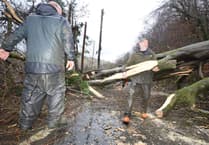The journalism industry currently faces an onslaught of challenges. Many of them are economic in nature, according the National Union of Journalists: Pay stagnation, below-inflation wage increases, under-staffed newsrooms, and growing redundancies. That doesn’t inspire confidence in the future and, according the the BBC, more people are turning away from the news, describing it as depressing, relentless and boring.
Horrors across the globe — climate change, Russia’s invasion of Ukraine, the crimes of the Israeli government and Hamas and Hezbollah — are reported on without solutions. The same applies to UK stories: the NHS’s myriad struggles, our unreadiness for another pandemic, our unreadiness for potential war in Europe… a daily deluge of hopelessness.
These events are happening and pose very real threats. However, journalism’s greatest power is its ability to shape society. We must not shape it in an oversimplified or overwhelmingly negative way. Every story is more nuanced than that. People are searching for solutions and acting to change things. Our reporting must reflect this.
Solutions must be balanced and feasible. Articles like this on the future of journalism itself, are broad and wide-reaching by nature. My purpose here is not to provide exact strategies that will keep journalism alive: it is to consider why we should bother creating these strategies in the first place.
Journalism must operate effectively at all levels — local, regional, and national — if it is to survive. Major national newspapers are generally in a healthy economic position. The Guardian, The Financial Times, and Reach Plc’s outlets (the Mirror and Express newspapers etc.) all reported increased profits in 2023. The recent announcement of layoffs and programming cuts at the BBC is an anomaly.
Issues within the wider publishing world affect these outlets. However, the struggle really exists below the national level. On 25 November, the Communications and Digital Committee published a report on the state of UK news. A summary of the report from the Parliament website reads: “Local news lost 70 per cent of its advertising between 2010-2020. Many sources of income are still falling and will not return.” Smaller newspapers continue to make shrewd, difficult financial decisions to survive.
We must consider news beyond the major national outlets. Beginner journalists typically start out at these smaller publications. The demise of many of these papers means that opportunities are rapidly decreasing. We have the misfortune of entering a very volatile field.
We also have the privilege of starting out with radically advanced technology. The internet, social media, and highly-regulated use of generative artificial intelligence (AI) are not enemies to journalism. Gavin Allen, a digital journalism lecturer at Cardiff University, says: “Newspapers feared radio would kill them off. Both thought TV would kill them. Then it was the internet, now it’s AI.” Our anxiety towards new technology is part of a historical cycle.
Social media allows journalists to report on events in real time and immediately reach vast audiences. This has obvious advantages, but this is also how misinformation spreads. Readers and viewers of news shape narratives around the facts. Publications sometimes do this intentionally. What happens to information once it is out in the world is usually beyond our control. This is why ethical reporting is more important than ever.
Some companies see journalism purely as a business. These happen to be the companies that own social media platforms. But journalism is a protected sector in democratic societies. Objective reporting adheres to public interest and freedom of speech rights. This means that companies like Meta (who owns Instagram and Facebook) cannot violate these rights without legal and financial consequences. Since their main concern is profit, they are unlikely to directly prevent journalists from using their platforms for objective reporting, although we must keep our guard up. The ethos of journalism and the potential for accountability often goes against these companies’ interests.
Generative AI surpasses the power that social media has to change the industry. These intelligence models draw upon material (text, images, video, audio etc.) previously created by humans in order to generate content. AI’s potential is both productive and destructive — journalists must strive to understand the technology. Vian Bakir, professor of journalism and political communication at Bangor University, emphasised that AI can be used to “generate ideas for stories” and “for doing grunt work of formulaic stories”. This “grunt work” includes summarising complex documents for research purposes, as well as proofreading finished articles.
AI is a valuable tool if its use is regulated. Unregulated use of AI will destroy the industry. It must exist alongside human-led journalism. The developers of commercial generative AI tools — such as OpenAI with ChatGPT and Microsoft with Copilot — also, like Meta, prioritise profit above all. If journalists give in and let AI take the reins, the industry will become a wasteland. Soulless profit-driven AI-generated content will replace human-produced writing and broadcasting. As with social media, the goal is to maintain journalistic integrity. Beginning and aspiring journalists can set the standard for ethical AI use and ensure its permanent regulation.
Strategic use of technology will revitalise the journalism industry at the local, regional, and national levels. We have immensely powerful tools at our disposal — technologies that, if used thoughtfully, will allow us to do our work more effectively than ever. If we don’t redirect some of our attention to smaller newspapers and ethically utilise these tools, the field will cease to exist.
It all depends on what we do here and now.
Iestyn Tudor is the chief editor of Aberystwyth University’s student newspaper, the Mouth of the Ystwyth. The newspaper can be found on Instagram @mouthoftheystwyth. Iestyn is an aspiring journalist and author whose work can also be found on Instagram @iestyntudorwriting.




